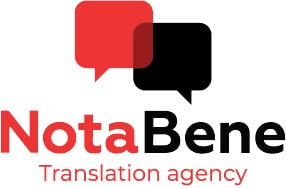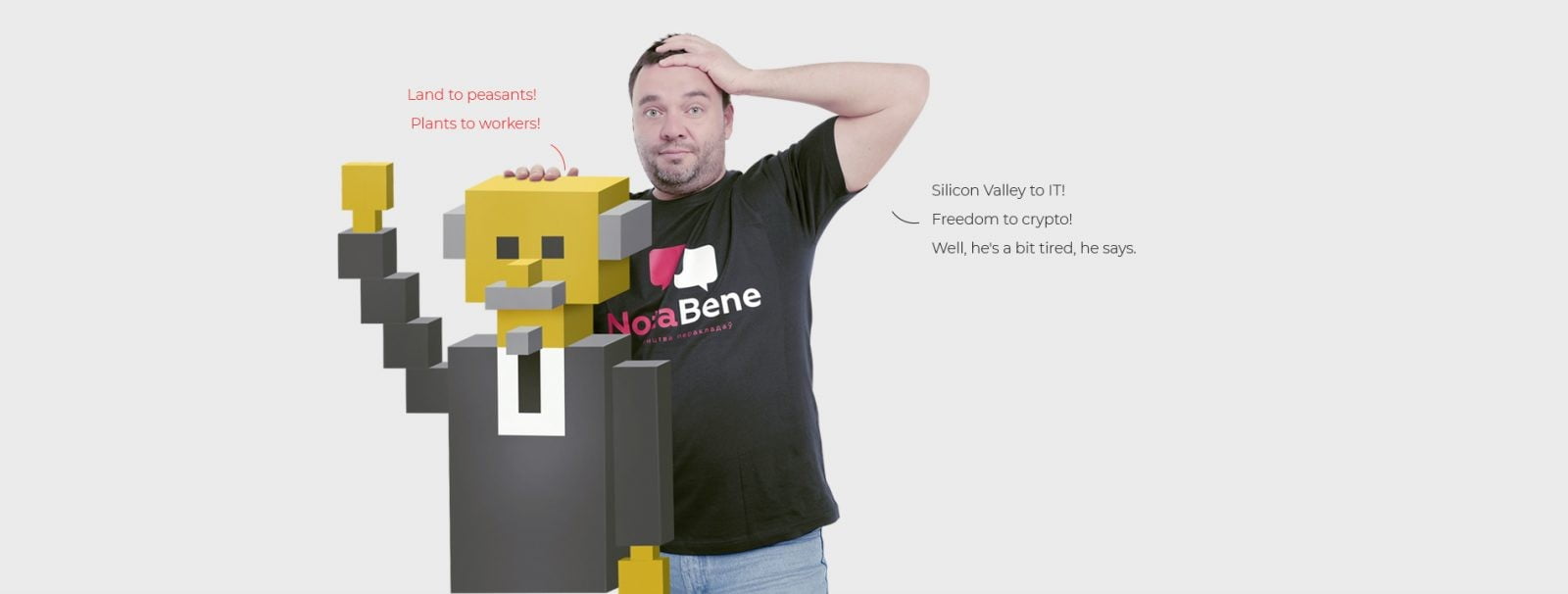NotaBene localization studio
Software localization for foreign markets
Do you have a great game and wish to market it abroad? You have developed a blockchain platform, but have no idea how to engage foreign users? No one is aware of your product in foreign markets?
WOM marketing may play the trick, or you can put your faith in magic… Another sure way, though, is to order localization from NotaBene.
Fill in the short form at the bottom of the page and we will answer all your questions about the localization of your product.
What is localization?
Localization is the adaptation of your content to the standards of a specific region or market in terms of both language and culture. The main objective of localization is for an expert to process your content and make it understandable and native-sounding to customers in a different country, who will perceive the product as if it were created specifically for them. A properly localized product becomes better visible to customers, who appear to trust it more. It is localization that helps companies successfully compete in international markets.
A region’s cultural features are essential in the promotion of products and services, whereas the traditions and habits of the target audience are direct sales drivers. Localization must account for local financial systems, religion, humor, and vernacular specific to the locality, as well as terminology and catchpenny phrases from a specific field of knowledge.
Localization naturally encompasses basic linguistic aspects. Grammar and vocabulary differ markedly in American and British English, and there are huge differences in Portuguese spoken in Portugal and Brazil, as well as many variants of Spanish in South American countries.
Website localization
In our global world, a growing geographic presence is vital to increase sales. The easiest and most effective expansion tool is a corporate website. It is great that you have pages in foreign languages, but are they enough to interest prospective customers? Are you sure your website translation is good enough?
Poor localization is obviously a reason for poor sales.
Take a good look at your website:
- Which currency is used to show prices?
- Which measurement units are used?
- Does your company apply British grammar rules in the U.S. market?
- What is the order of presentation of sections, and graphic data?
- Which payment methods are activated?
- Which time zones are listed?
These are just a few things you need to pay attention to when localizing, in addition to translating the website content. We will answer all of the above questions, provide a rationale when something needs to be modified, and highlight details that you should focus on. You may not need all the materials on your website translated. Our specialists will analyze your website to make sure it is relevant to the local market, whereas our native speakers and style editors will ensure that all texts sound clear to your customers.
App localization
The mobile app market is one of the fastest-growing IT segments. Developing an application and placing it on popular platforms is never enough. Competent localization is crucial for increasing the reach, winning new audiences, and improving user satisfaction.
As they embark on a new localization project, our specialists make sure the customer approves each detail: from measurement units and menu items to the number of characters allowed in a single line, as well as the order, in which graphic elements are displayed (which is critical for the right to left languages). When it comes to sales, there are no things to neglect. Completely harmless advertising texts, slogans, and images that are familiar and common in one country may be considered unethical or shocking in a different culture.
For example, in Polish, the first-name basis is customary in advertising texts. In Russian-speaking regions, though, this is only acceptable for apps targeting young people. Whenever you address an older target group, women or businessmen, the first-name basis will be considered rude, and the money spent on marketing an app abroad will never have the desired result. A blunder will affect your company’s image as well. There can be many such nuances, and as a rule, they are unobvious not only to the developers but also to the translators who live outside the target region.
On the other hand, effective localization will contribute to your brand credibility and user loyalty. Loyal customers not only use your app more often but also share their positive experiences with their friends, which increases your sales in the long run.
At NotaBene, we localize projects by engaging translators and editors who are native speakers residing in respective countries.
Game localization
We take special pride in localizing game content. It is our favorite type of translation job — the most creative, non-standard multidimensional task that is akin to literary translation. Due to its format, this translation implies a lot of nuances, both linguistic and cultural.
Game localization is a challenge embracing a myriad of things that developers might often miss in job specifications. For example: should we use a dot or comma in fractions? How can a larger Russian text fit into the slot reserved for laconic Polish or English phrases? How can hieroglyphs be incorporated if a game is released in Oriental markets?
Capturing the spirit of the game and its unique ambiance to engage a player is admittedly the most difficult and at the same time the most exciting part of any game localization job. How should you translate jokes? Humor is normally based on local traditions, and translating it becomes a serious test even for seasoned professionals.
A poor translation ruins the charms of diving into the world of a fantasy game, and the game itself becomes meaningless and loses its value.
We are positive that it is possible to deal with all of the above difficulties. To this end, localization should be done in the country where sales are planned, the result should be assessed by a focus group whenever necessary, and the texts must be edited and proofread by independent linguists.
Blockchain, cryptocurrencies, NFTs — what next?
The digital revolution is here. Decentralized financial systems, mining and staking, electronic exchanges, and NFTs — these brand-new phenomena already feel at home in our lives. None of them are limited to the borders of any country or to a specific language. When localizing such projects, it is often necessary to coin new terms, because they have never been translated into a foreign language. Our expert team will work together with your marketing managers and developers to create a truly global product that will be understandable and recognizable internationally.
We follow the latest trends and are well-versed in the volatile world of blockchain, cryptocurrencies, e-commerce, and trading. No matter which innovation hits us next, we’ll be at the forefront of the translation endeavor.
Design, develop, and promote your product globally with NotaBene.







